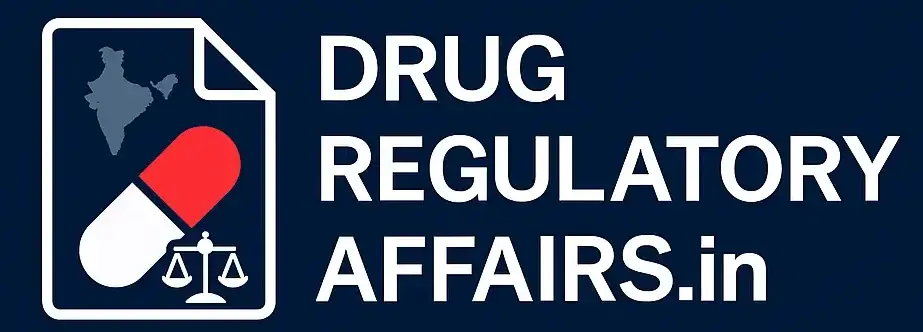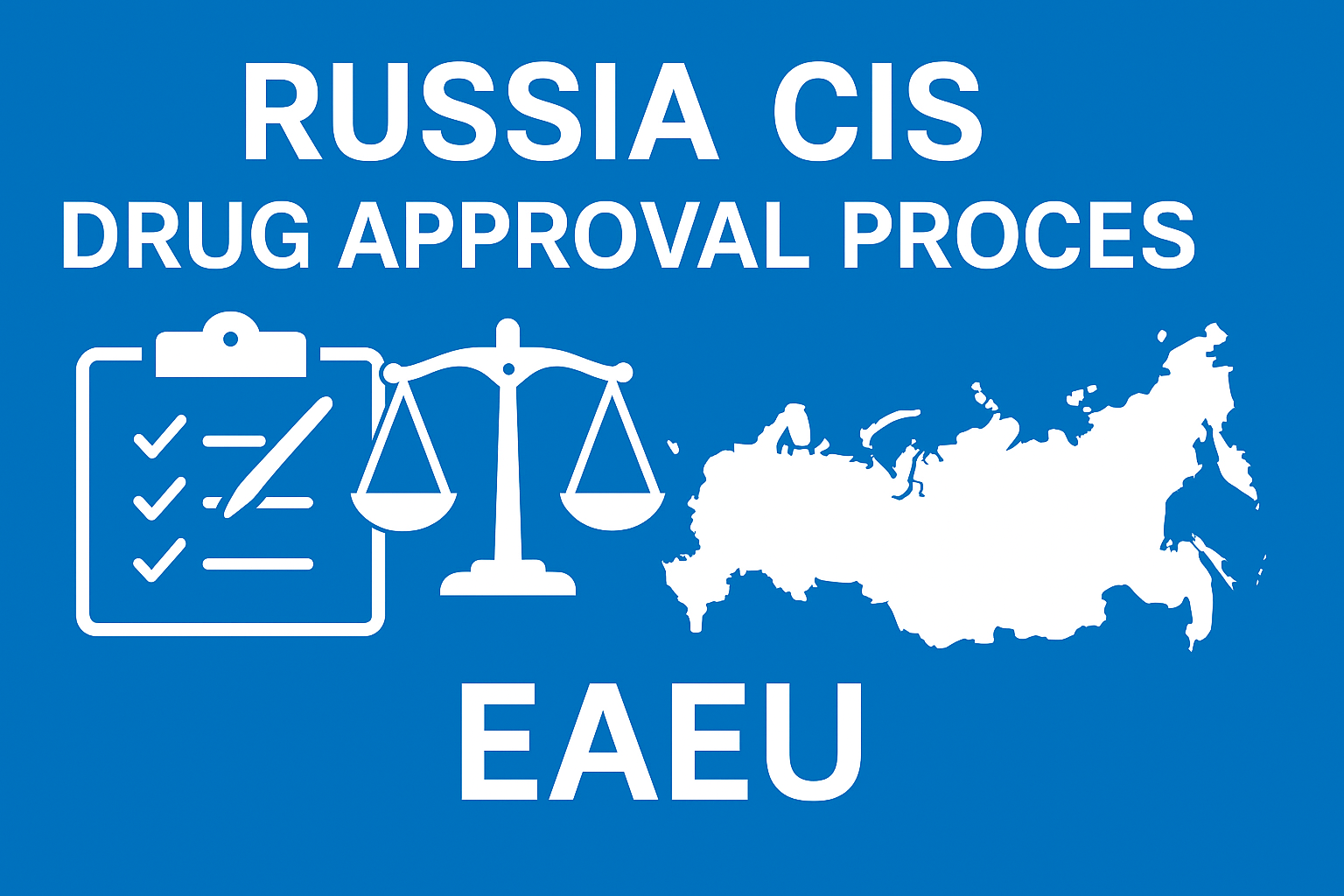Russia CIS Drug Approval Process – EAEU Centralized Registration Explained
The pharmaceutical market across Russia and CIS (Commonwealth of Independent States) is one of the most dynamic and complex due to its transition from national regulations to a centralized EAEU (Eurasian Economic Union) framework.
Understanding the Russia CIS Drug Approval Process is essential for any pharma company entering Eurasia.
Also Read: Africa Drug Approval Process – How to Register a Drug in Nigeria, Kenya, and Across the Continent
For companies planning to market pharmaceutical products in Russia, Kazakhstan, Belarus, Armenia, and Kyrgyzstan, understanding this evolving regulatory landscape is critical.
This guide covers every step of the Russia CIS Drug Approval Process, with a strong focus on the EAEU centralized registration procedure, helping you achieve compliance and successful product launch.
🌍 Understanding the EAEU (Eurasian Economic Union)
The EAEU is a regional economic bloc established in 2015, comprising:
- Russia
- Kazakhstan
- Belarus
- Armenia
- Kyrgyzstan
It aims to create a common pharmaceutical market by harmonizing drug approval procedures, technical documentation, pharmacovigilance, GMP inspections, and labeling.
As part of the Russia CIS Drug Approval Process, all documents must be translated into Russian.
Must Read: MHRA Drug Approval Process – How to Register a Drug in the UK (Step-by-Step Guide)
🏛 Regulatory Bodies Involved
🇷🇺 Russia:
- Ministry of Health (Minzdrav) – Issues marketing authorizations.
- Roszdravnadzor – Oversees inspections and post-market surveillance.
- SID & GP – Scientific expert organization for dossier evaluation.
🌐 EAEU Oversight:
- EEC (Eurasian Economic Commission) – Develops unified regulations.
- National competent authorities still retain oversight for local enforcement.
🛤 Transition to EAEU Centralized Registration
Until recently, each member country had its own national approval process, which often involved:
- Country-specific formats
- Translations into Russian/Kazakh
- Inconsistent GMP recognition
However, since January 2022, the EAEU centralized registration has become mandatory for new drug applications.
📄 Key Benefits of Centralized EAEU Approval
✅ One-time submission and review
✅ Validity across all 5 EAEU countries
✅ Common technical document (CTD) format
✅ Unified GMP inspection and pharmacovigilance system
📋 Types of Drug Applications in the EAEU
- Original Drugs
- Generic Drugs
- Biosimilars
- Over-the-Counter (OTC) Drugs
- Orphan Drugs
- Re-registration and Variations
Each category follows slightly different requirements and evaluation timelines.
🔍 CTD Format Requirements
The EAEU accepts ICH-compliant CTD structure:
- Module 1 – Country-specific admin and labeling documents
- Modules 2–5 – Same as ICH: summaries, quality, clinical, non-clinical data
📝 Module 1 must be in Russian for all member states.
📌 Key Documents Required for Russia CIS Drug Approval Process
| Document | Notes |
|---|---|
| Application form | Must be in Russian |
| CPP | Notarized copy |
| GMP Certificate | From authorized inspection bodies |
| Patient leaflet & label | Russian language mandatory |
| Clinical Summary | Region-specific epidemiological data may be needed |
| Local Agent Authorization | Required for foreign companies |
📅 Timelines & Review Stages
| Stage | Duration |
|---|---|
| Dossier Submission | Day 0 |
| Validation | 30 working days |
| Expert Evaluation | 120 working days |
| Decision & MA Grant | 30 working days |
🕒 Total Duration: Approx. 6–8 months, barring objections or GMP delays.
💰 Regulatory Fees (Approximate)
| Country | Application Fee (USD) |
|---|---|
| Russia | $5,000–$10,000 |
| Belarus | $3,500–$6,000 |
| Kazakhstan | $4,000–$7,000 |
| Armenia | $3,000–$5,000 |
| Kyrgyzstan | $2,500–$4,000 |
🏢 Local Representation Requirement
Foreign manufacturers must appoint a local representative in at least one of the EAEU countries. This agent will:
- Submit the application
- Communicate with authorities
- Manage post-approval obligations
🧪 GMP Requirements in the Russia CIS Drug Approval Process
- GMP certificates must be from an EAEU-recognized body
- Roszdravnadzor (Russia) and similar authorities conduct inspections or accept mutual recognition
- On-site inspections may be required for new applicants
🔄 Re-registration and Lifecycle Management
✔️ Initial Approval Validity
- 5 years, followed by unlimited validity upon re-registration
🔁 Variations
- Managed centrally through the same portal
- Types of variations: quality updates, labeling changes, new indications, etc.
🌐 Labeling & Language Requirements
- All product info (leaflet, carton, blister) must be in Russian
- In Kazakhstan, also required in Kazakh
- Labeling templates provided in EAEU guidelines
🔬 Pharmacovigilance & Post-Approval Obligations
- Must appoint a local QPPV (Qualified Person for Pharmacovigilance)
- Submit PSURs, RMPs, and signal detection reports
- Risk minimization measures vary per product
🔁 Comparison: Russia/CIS vs USFDA/EMA
| Feature | Russia/EAEU | USFDA | EMA |
|---|---|---|---|
| Centralized Pathway | Yes (EAEU) | Yes | Yes |
| Language | Russian | English | English |
| CTD Format | Yes | Yes | Yes |
| eCTD Accepted | Partially | Yes | Yes |
| Timeline | 6–8 months | ~10 months | ~210 days |
| Inspections | Mandatory | Mandatory | Mandatory |
🚧 Common Pitfalls to Avoid
- Improper Russian translation
- Missing notarized documents
- Unrecognized GMP certificates
- Delays in QP assignment
- Country-specific data not included
🧠 Expert Tips for Success
- Always validate your Module 1 early
- Hire an experienced Russian-speaking local agent
- Start GMP inspection coordination early
- Ensure R&D data includes local relevance
- Monitor for regulatory changes in EAEU guidelines
📌 Case Study: EAEU Centralized Approval for Generic Drug
A European pharma company filed a generic cardiovascular drug via the EAEU pathway. They:
✅ Appointed a Russian regulatory agent
✅ Submitted full CTD with Russian translations
✅ Passed Roszdravnadzor GMP inspection
✅ Got approval valid in all 5 EAEU countries
Result: Marketing Authorization in 7 months with full regional access.
❓ FAQs – Russia CIS drug approval process
Q1: Is EAEU approval valid across all CIS countries?
No. It covers EAEU members only, not all CIS countries. Other CIS nations like Ukraine or Uzbekistan require separate approvals.
Q2: Is CTD mandatory in EAEU?
Yes, ICH CTD is mandatory.
Q3: Can we use WHO or EMA approvals?
They help, but do not replace local evaluation.
Q4: How long does it take?
Average time is 6–8 months, depending on inspection status and completeness.
✅ Conclusion – Russia CIS drug approval process
The Russia CIS drug approval process is undergoing a transformative shift toward centralized, harmonized regulation via the EAEU model.
While this offers huge potential for companies seeking access to a market of over 180 million people, it also demands rigorous preparation, accurate translation, and regulatory intelligence.
The Russia CIS Drug Approval Process mandates a local representative…
Mastering the Russia CIS Drug Approval Process positions companies for success across Eurasia.
With a compliant CTD dossier, an experienced local agent, and readiness for GMP inspections, your product can achieve multi-country authorization and a successful commercial launch in Russia and neighboring markets.

